PRESERVING A MILITARY LEGACY FOR FUTURE GENERATIONS
The following Reflections represents SGT Julie Bryson Muster’s. legacy of his military service from 1987 to 1998. If you are a Veteran, consider preserving a record of your own military service, including your memories and photographs, on Togetherweserved.com (TWS), the leading archive of living military history. The following Service Reflections is an easy-to-complete self-interview, located on your TWS Military Service Page, which enables you to remember key people and events from your military service and the impact they made on your life. Start recording your own Military Memories HERE.
Please describe who or what influenced your decision to join the Army.
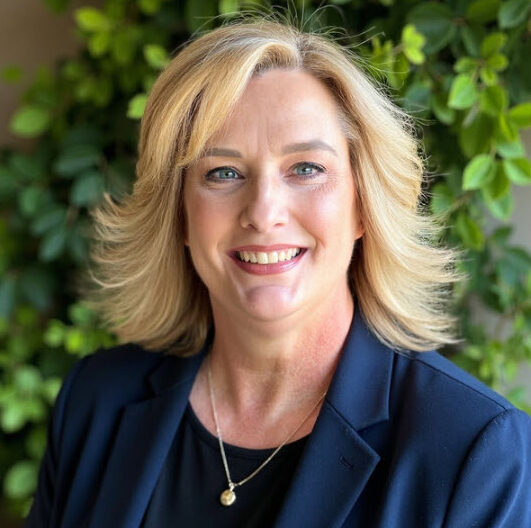
Facing a dead-end life with limited opportunities and wanting to break free from my circumstances, I enlisted in the U.S. Army in 1987 with a clear vision: to go to college and become someone meaningful. Growing up in challenging conditions from ages 5-12 in group and foster homes in Ohio, with abusive, alcoholic, and addicted parents, I experienced firsthand what it meant to have few options and little encouragement. The Army represented my pathway to transformation – not just a career, but a chance to build the foundation for higher education and personal growth. Military service offered structure, purpose, and the GI Bill benefits that would make college possible. I was determined to use my service as a stepping stone to earn my master’s degree in criminal justice and ultimately create a life of meaning, helping others along the way. The Army wasn’t just an escape from a difficult past; it was my deliberate choice to forge a better future and prove that circumstances don’t define destiny.
Whether you were in the service for several years or as a career, please describe the direction or path you took. Where did you go to basic training, and what units, bases, or squadrons were you assigned to? What was your reason for leaving?
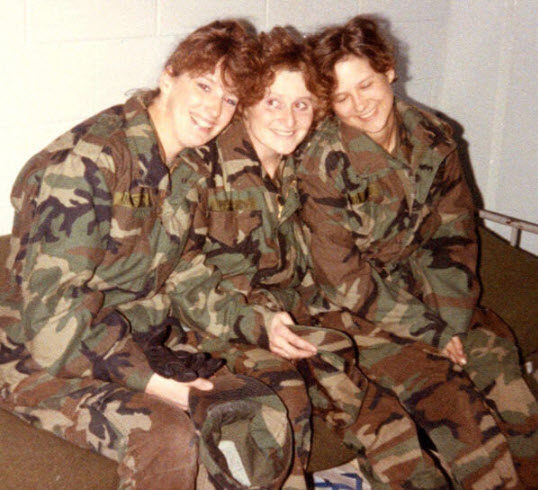
My military journey began in 1987 with basic training in the last female unit housed in the World War II barracks on Tank Hill (so they would not repair anything!) at Fort Jackson, South Carolina, where I formed a lifelong friendship with PFC Amanda Giliotti that has endured for 39 years. Following AIT at Fort Jackson, my first duty station was Fort Lee, Virginia, where I served as a Report of Survey Clerk and Supply Sergeant at the U.S. Army Quartermaster Center and School. During my tenure, I completed my associate’s degree and earned the Fort Lee Soldier of the Year award in 1991. During this assignment, I also attended PLDC at Fort Knox, Kentucky, graduating as a Distinguished Graduate. My next assignment took me to Seoul, South Korea, initially as Unit Supply Sergeant for Headquarters Company, 227th Maintenance Battalion, before being selected as Orderly Room NCOIC after eight months. At Redstone Arsenal, Alabama, I briefly served as Unit Supply Sergeant before advancing to Executive Assistant for the U.S. Army Ordnance Center and School Sergeant Major. During my BNCOC assignment at Fort Lee, I was selected as First Sergeant for approximately 500 soldiers and graduated as Honor Graduate of my class, then returned to Redstone Arsenal as NCO Academy cadre and Unit Supply Sergeant, teaching family readiness and unit accountability. My final assignments were in Germany, beginning with two months at the 236th Medical Company (Air Ambulance) in Landstuhl before my 15-month deployment supporting Operation Joint Endeavor, where I was instrumental in establishing RSOI operations for USAREUR and Seventh Army, initially in Giesen and later Babenhausen. I concluded my career in Pirmasens, Germany, as Property Book NCOIC, ending in 1998 after 11 years of distinguished service, when my second son was born with serious health issues, making deployment incompatible with the demands of motherhood.
If you participated in any military operations, including combat, humanitarian, and peacekeeping operations, please describe those that made a lasting impact on you and, if life-changing, in what way?
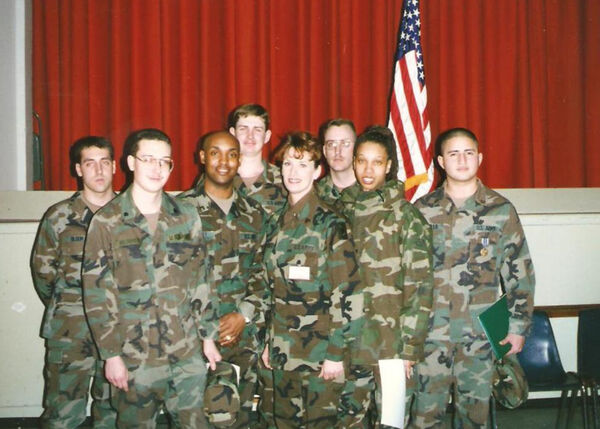
IFOR & SFOR Support:
During my 15-month deployment supporting Operation Joint Endeavor, I played a critical role in both IFOR (Implementation Force) and SFOR (Stabilization Force) operations in the Balkans. Based initially in Giesen, Germany, I was instrumental in establishing RSOI (Reception, Staging, Onward Integration) operations for Headquarters United States Army Europe and Seventh Army, preparing and processing reserve component forces for deployment to Turkey and Bosnia-Herzegovina. My responsibilities included coordinating the complex logistics of troop movement, equipment staging, and personnel readiness as forces transitioned from peacekeeping under IFOR to the stabilization mission under SFOR. When operations relocated to Babenhausen, Germany, in January 1997, I continued supporting the multinational effort to maintain peace and stability in the former Yugoslavia, ensuring seamless integration of arriving units into the theater of operations.
Of all your duty stations or assignments, which one do you have fondest memories of and why? Which was your least favorite?
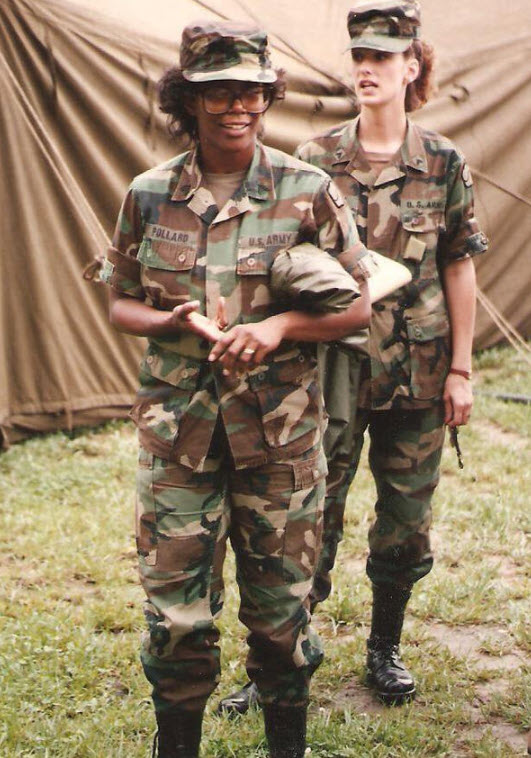
Fondest Memories: My favorite duty station was Giessen, Germany (G-I-E-S-S-E-N) because it was actually shut down when we got there. We had to reopen it to set up the RSOI – Reception, Staging, Onward Integration – as part of Operation Joint Endeavor. We literally built something from the ground up, which was incredibly rewarding.
What made it special was that we were right next to an old airfield that was covered in sheep, and we always had to watch out for them! There was only one small PX a couple of blocks up the street, so we really had to live within the German economy. I loved that aspect – it forced us to experience something completely different and new. You really have to know the German people and see how they function in their daily lives. It wasn’t just serving overseas; it was truly immersing yourself in a different culture.
Least Favorite: I don’t really have a least favorite assignment, but if I had to pick, it would probably be Redstone Arsenal, Alabama – and only because I absolutely hated the weather! It was muggy and hot and yucky, with lots of bugs and snakes and constant tornado warnings. I had Patrick when I was stationed there, which wasn’t a bad thing, but we slept in the bathtub so many nights because of tornado warnings.
Even Korea, which was challenging with the climate and separation from family, had great people like Sergeant Queenie Pollard, who was absolutely no-nonsense and kept us all grounded.
The weather aside, I served with great people at every duty station. Each assignment taught me something valuable that I use today, helping veterans navigate their own challenges.
From your entire military service, describe any memories you still reflect on to this day.
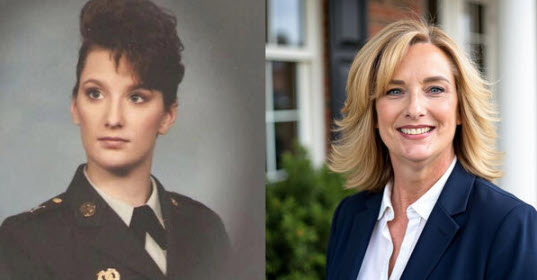
LEADERSHIP ACADEMIES AND ORDNANCE NCO ACADEMY
I reflect back often on attending all the different leadership academies and courses, and especially being cadre at the Ordnance NCO Academy. Those were truly learning experiences that allowed you to see other ways of doing things, other ways of leading. Perhaps it wasn’t the way you would originally do it, but there was purpose to everything, and there’s more than one way to get to the same destination.
Being cadre was particularly eye-opening because you’re not just learning leadership – you’re teaching it, which forces you to understand the “why” behind different approaches. That experience taught me that effective leadership isn’t about having one perfect method; it’s about adapting your style to the situation and the people you’re leading.
BUILDING SOMETHING FROM NOTHING – GIESSEN, GERMANY
The experience of reopening Gie’en for Operation Joint Endeavor still amazes me. We literally built something from the ground up – setting up RSOI (Reception, Staging, Onward Integration) at a base that had been shut down. I remember those sheep wandering around the old airfield and having to navigate around them!
What I reflect on most is how we had to live within the German economy because there was only that one small PX up the street. It forced us to truly immerse ourselves in German culture, get to know the local people, and see how they lived their daily lives. That taught me adaptability and openness to new experiences that I use every single day.
TORNADO NIGHTS – REDSTONE ARSENAL
I still think about those nights at Redstone Arsenal when Patrick was just a baby, and we’d sleep in the bathtub because of tornado warnings. The muggy Alabama weather was miserable, but those moments taught me about protecting what matters most and staying calm under pressure – skills I definitely need when helping veterans navigate stressful VA claims!
KOREA
Korea was challenging, but I still think about my boss, an absolutely no-nonsense female NCO who kept us all grounded and had this thing for purple. She taught me that leadership isn’t about being loud; it’s about being steady and reliable when others need you most.
What professional achievements are you most proud of from your military career?
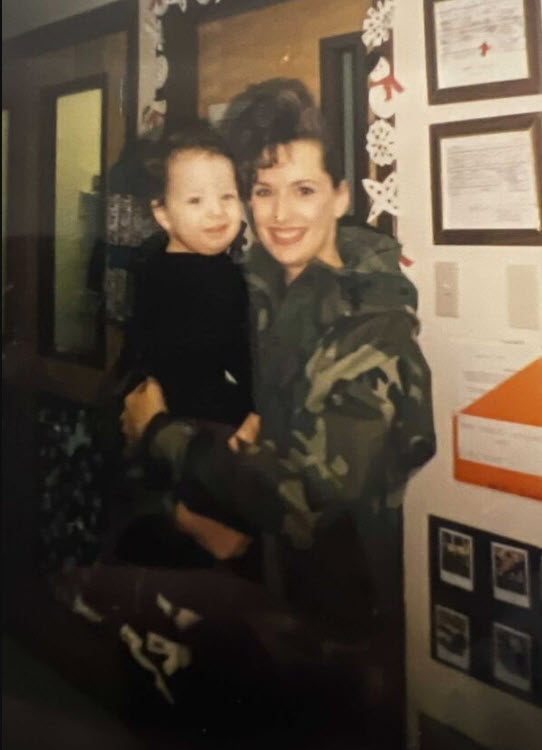
MEMORIES THAT STILL SHAPE ME TODAY:
There are several moments from my military service that I still carry with me and reflect on regularly:
THE TIMES WHEN I WAS RECOGNIZED FOR EXCELLENCE
I’d have to say the times when I excelled stand out most. When I graduated from basic training, the drill sergeants put me in for my promotion to E2 immediately. I was an honor graduate for both PLDC and BNCOC. And also in BNCOC, I was selected as the academy student first sergeant, which was a true honor.
During my time as Student 1SGT, we had a huge academy formation for both BNCOC and ANCOC. It was very humbling to be the person in front of the BNCOC academy formation facing the ANCOC student first sergeant. Those moments proved to myself and others that the girly girl who people said would “never make it” could not only succeed, but excel at the highest levels.
Of all the medals, awards, formal presentations, and qualification badges you received, or other memorabilia, which one is the most meaningful to you and why?
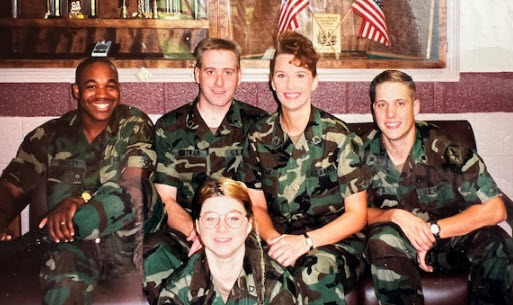
Of all the medals, awards, and formal recognitions I received during my 11-year Army career, including four Army Commendation Medals, three Army Achievement Medals, my Meritorious Service Medal, and being an Honor Graduate of my BNCOC class, the most meaningful piece of memorabilia isn’t official at all.
During BNCOC field training, when I was in charge of AIT students, I earned the nickname “NCO No-Go” because I refused to compromise on standards and demanded strict adherence to rules and regulations. At the end of that challenging assignment, those same students presented me with a walking stick they had crafted from a large branch, cleaned, then covered with their signatures and hilarious, heartfelt comments.
While my formal awards recognize professional achievements and milestones, that simple wooden stick represents something far more valuable: the respect of soldiers I led through tough training, their acknowledgment that my unwavering standards made them better, and the humor and camaraderie that develops when people push through adversity together. It’s a tangible reminder that leadership isn’t about being liked; it’s about caring enough to hold people to the standards that will keep them alive and help them succeed.
Which individual(s) from your time in the military stands out as having the most positive impact on you and why?
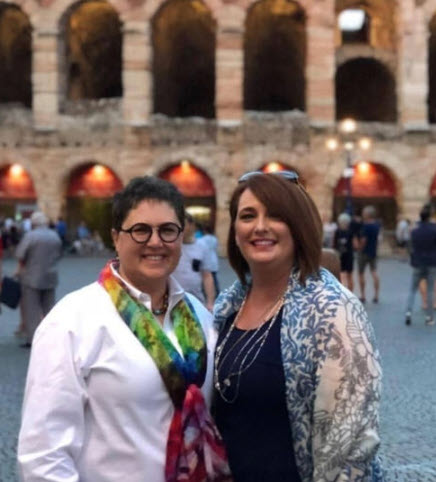
Without question, my battle buddy Amanda Giliotti stands out as having the most positive impact on me during my military service. At 25 years old, she joined the Army to pay off her college loans, and our bond was forged immediately during basic training at Fort Jackson. After completing basic training and AIT as an 88M truck driver, she quickly advanced to OCS and became an officer. Her officer advanced training coincidentally took place at Fort Lee, Virginia, while I was stationed there, giving us several more months together during her transition to a “candy ass officer,” and while she was a reservist and I was active duty, our friendship transcended those differences. She went on to earn her law degree and become a successful tax attorney, maintaining that magnetic personality that draws people to her while never taking junk from anyone. Her partner often jokes that “nobody talks to Amanda the way you do” because of her national status. I always laugh and remind them that’s because we shared a pup tent where I had to smell her feet and farts for months, dug foxholes together, and even shared a stray bullet zooming past our heads (true story). We were always the first up and last to bed, meaning we never got hot water for showers. After 39 years, she’s more than a friend; she’s my sister, and that bond forged in the hardships of basic training has been one of the most enduring and positive relationships of my life.
List the names of old friends you served with, at which locations, and recount what you remember most about them. Indicate those you are already in touch with and those you would like to make contact with.
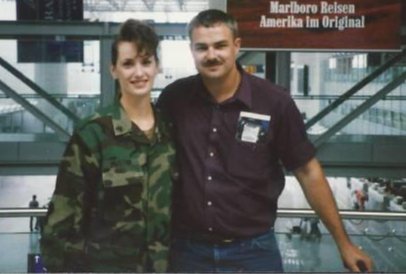
Throughout my military service, I was blessed to serve alongside some truly unforgettable people who made even the toughest situations bearable.
Starting with my battle buddy, Amanda Giliotti at Fort Jackson, our 39-year friendship speaks for itself.
During AIT, I met PFC Copeland and PV2 Kidd, both masters at making me laugh during the hardest situations – their humor was a lifeline during training.
At Fort Lee, Virginia, my barracks roommate, Brenda Humphrey, earned the nickname “the death clerk” and was wonderfully odd in the most entertaining way.
In Korea, I served under SGT Queenie Pollard, a no-nonsense leader who never lost her cool for any reason and had an absolute love for the color purple – her calm demeanor was something I truly admired.
At Redstone Arsenal, Alabama, 1SG Larry Taylor took me under his wing when I started my weightlifting journey, providing mentorship that went beyond just fitness – he encouraged me to become cadre at the NCO Academy and instruct.
The Sergeant Major there (whose name escapes me) would challenge me by getting off the treadmill and telling me how long he’d run, daring me to match his pace – despite being much older, I could never keep up with him!
During BNCOC at Fort Lee, I met SGT Mary “Nic” Nickerson from Fort Hood, who was absolutely magnetic and someone I genuinely miss – I wish I knew where she is today.
In Germany, an Air Force Sergeant First Class taught me country line dancing, adding some fun to overseas duty.
During Operation Joint Endeavor, I formed an incredibly tight bond with SSG Kenneth Newell and SGT Tony Garcia. The three of us were inseparable during those grueling 18-hour workdays, always having each other’s backs and ensuring everyone had eaten and had what they needed. They were especially protective of me since I was away from my son, and that brotherhood sustained us through one of the most demanding deployments of our careers.
Can you recount a particular incident from your service, which may or may not have been funny at the time, but still makes you laugh?
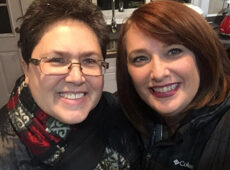
I actually have three incidents from basic training that still make me laugh, though none were funny at the time.
The first was our journey from the reception center to Tank Hill in what can only be described as a cattle truck – and the drivers seemed to take great pleasure in driving as recklessly as possible, trying to get us to bounce off the walls. Talk about a welcome to the Army moment!
Then there was bayonet training when we had to stab scarecrow people figures while chanting “Blood makes the grass grow!” – that’s when reality hit that I was learning to kill people, not just getting my ticket to college.
And finally, my 25-year-old battle buddy who refused to blindly (and silently) obey the drill sergeants’ orders got us all intimately acquainted with Drop Neck Hill, doing countless upside-down push-ups because she just wouldn’t close her mouth.
What profession did you follow after your military service, and what are you doing now? If you are currently serving, what is your present occupational specialty?

Following my departure from military service in 1998, I dedicated ten years to raising my children while establishing a successful medical billing business that I operated for several years. During this stay-at-home period, I completed both my bachelor’s and master’s degrees and volunteered extensively at my church with MOPS (Mothers of Preschoolers). In 2008, I transitioned to public service as Executive Assistant to the Chief of Police for DC Protective Services, the mayor of DC’s police department, where I quickly earned several promotions and advanced to Operations Manager.
After six years, I left in 2014 to serve as a consultant in DuPont Circle, Washington, DC, until 2015. In March 2015, I began my tenure with my county government, where I served as Assistant Chief of Staff, Citizen Response Manager, and the county’s first-ever Veteran Services Manager until 2023. I then joined a federal agency in Washington, DC, where I currently work and plan to retire in three years. Throughout these decades, I’ve maintained my passion for helping veterans, which led me to establish Boots 2 Benefits, LLC and the IGY6 Movement. Now, I’m preparing to publish my first book in August 2025, combining my professional expertise with my lifelong commitment to veteran advocacy and support.
What military associations are you a member of, if any? What specific benefits do you derive from your memberships?
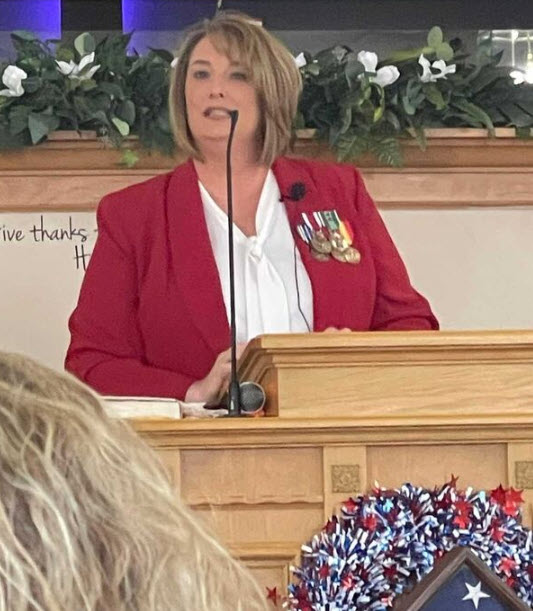
I am a lifetime member of both the Disabled American Veterans (DAV) and the American Legion, reflecting my deep commitment to veteran advocacy and community. Additionally, I’m an active member of several women’s veteran organizations, including the Women’s Veterans Initiative, the National Women’s Memorial in Washington, D.C., the Women’s Veterans Alliance, and the Foundation for Women Warriors.
I’m also involved with a women’s veterans’ legal organization. While each of these organizations offers various programs, resources, and advocacy opportunities, the most valuable benefit I receive from all of them is the same: the irreplaceable camaraderie from fellow veterans. There’s something uniquely powerful about connecting with others who understand the military experience, the challenges of transition, and the ongoing journey of veteran life. This brotherhood and sisterhood transcends individual organizational missions and creates a support network that has been instrumental in both my personal growth and my ability to help other veterans through Boots 2 Benefits and the IGY6 Movement. The shared understanding, mutual support, and collective strength we find in each other are what make these memberships truly meaningful.
In what ways has serving in the military influenced the way you have approached your life and your career? What do you miss most about your time in the service?
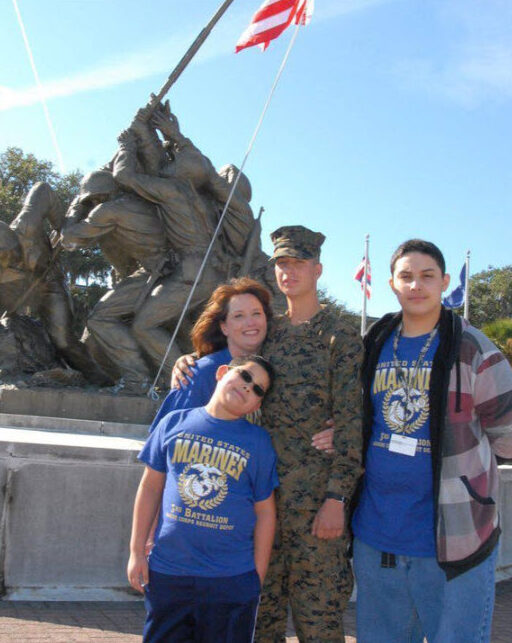
Serving in the military fundamentally shaped how I approach both my life and career, instilling values and practices that continue to guide me decades later. The Army taught me the importance of structure, discipline, and mission-focused thinking – principles I’ve carried into every role, from raising my children to managing operations in county government to launching Boots 2 Benefits. Military service ingrained in me the concept of “no one left behind,” which directly influences my pay-it-forward business model through the IGY6 Fund, ensuring veterans who can’t afford VA claims assistance still receive the help they’ve earned. The leadership skills I developed as a Supply Sergeant, cadre, and Small Group Instructor translate directly into my ability to guide veterans through complex VA processes with patience and clarity. My military training in attention to detail and following regulations has been invaluable in mastering the intricacies of 38 CFR disability law and helping veterans build stronger claims. Perhaps most importantly, the Army taught me resilience and perseverance – qualities that sustained me through my own 23-year VA claims journey and now fuel my determination to help other veterans succeed where I once struggled.
What I Miss Most About Military Service:
What I miss most about my time in service is the camaraderie, esprit de corps, and being surrounded by people who always have your back. There’s something irreplaceable about that military brotherhood and sisterhood – knowing that the person next to you would do anything to ensure your success and safety, just as you would for them. Whether it was Amanda Giliotti and I sharing a pup tent and having each other’s backs for 39 years, or SSG Newell and SGT Garcia making sure we all ate and had what we needed during those grueling 18-hour days during Operation Joint Endeavor, that bond is unlike anything in civilian life. The shared understanding, mutual support, and collective mission created relationships that transcended rank, background, or personal differences. That’s why I’m so passionate about recreating that sense of brotherhood through the IGY6 Movement – because once you’ve experienced that level of loyalty and support, you spend the rest of your life trying to build it again.
Based on your own experiences, what advice would you give to those who have recently joined the Army?
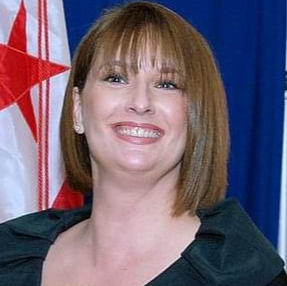
Based on my own experiences during 11 years of service, my advice to those who recently joined is crucial but straightforward: take full advantage of all training and education opportunities the military offers you. The Army will pay for your growth – use every benefit available to better yourself professionally and personally.
But equally important – don’t just sit in the barracks, especially when you’re stationed overseas. Get out there and try new things, get lost exploring, and truly enjoy experiencing other countries and cultures. Living overseas and learning about a foreign culture is much different than just traveling there on vacation, where you do very touristy things. By embracing the length of time you have in other countries, everything is going to become a treasured memory. Even the challenging times – like those monsoons in Korea that weren’t funny at the time but now make me laugh hysterically, remembering our tent collapsing because the monsoon rains were so intense – become stories you’ll cherish forever.
Until you serve your country and you serve overseas (to see the hardships of other countries and their foreign citizens), you’ll never be able to truly grasp and appreciate America and everything it offers. Again, simply going to a foreign country on vacation is not the same. I remember being horrified, and I’m still horrified, as I would listen to the man upstairs beat his wife, and I could just hear her hitting walls and floors. There was nothing I could do because they were allowed to do that in Korea at that time. So, it really opens up your eyes to what you’re fighting to defend and how privileged Americans truly are. These experiences will shape you as a person and leader in ways that go far beyond your military training.
The friendships you’ll make, the perspectives you’ll gain, and the confidence you’ll build by stepping outside your comfort zone will serve you for the rest of your life. The military gives you a unique opportunity to truly live in different cultures and understand what freedom really means – don’t waste it sitting in your room.
In what ways has TogetherWeServed.com helped you remember your military service and the friends you served with?

TOGETHERWESERVED.COM – RECONNECTING WITH MY MILITARY FAMILY
I actually just registered on TogetherWeServed recently (June 2025) as part of expanding my veteran networking for the IGY6 Movement, and I’m already seeing the value it brings to reconnecting with military memories and people.
WHAT I’VE DISCOVERED SO FAR:
Finding Lost Connections: The platform is helping me track down people like Mary Nickerson and others I served with but lost touch with over the years. You know how it is – you move from duty station to duty station, and sometimes you lose contact with people who were incredibly important to your military experience.
Preserving Service History: Having a centralized place to document my service timeline, duty stations, and the people I served with is invaluable. It’s like creating a digital military family tree that captures not just where I was, but who I was there with.
Rekindling Brotherhood/Sisterhood: What I love most is how it reinforces that military brotherhood/sisterhood connection. Once you’re part of that military family, you’re in it for life. The platform helps maintain those bonds that are so unique to military service.
THE BIGGER PICTURE:
For me, TogetherWeServed isn’t just about nostalgia – it’s about maintaining the connections that make the IGY6.2 Movement possible. Those relationships from Giesen, Korea, Redstone Arsenal, and all my other duty stations? They’re the foundation of the veteran support network I’m building today.
The camaraderie we had in uniform doesn’t have to end when we take it off. Platforms like TogetherWeServed help us find our people again – the ones who understand our communication style, our warped sense of humor, and accept us unconditionally.
It’s about ensuring no veteran is left alone, because we can reconnect with the family we served with and continue supporting each other in civilian life.
PRESERVE YOUR OWN SERVICE MEMORIES!
Boot Camp, Units, Combat Operations
Join Togetherweserved.com to Create a Legacy of Your Service
U.S. Marine Corps, U.S. Navy, U.S. Air Force, U.S. Army, U.S. Coast Guard

0 Comments